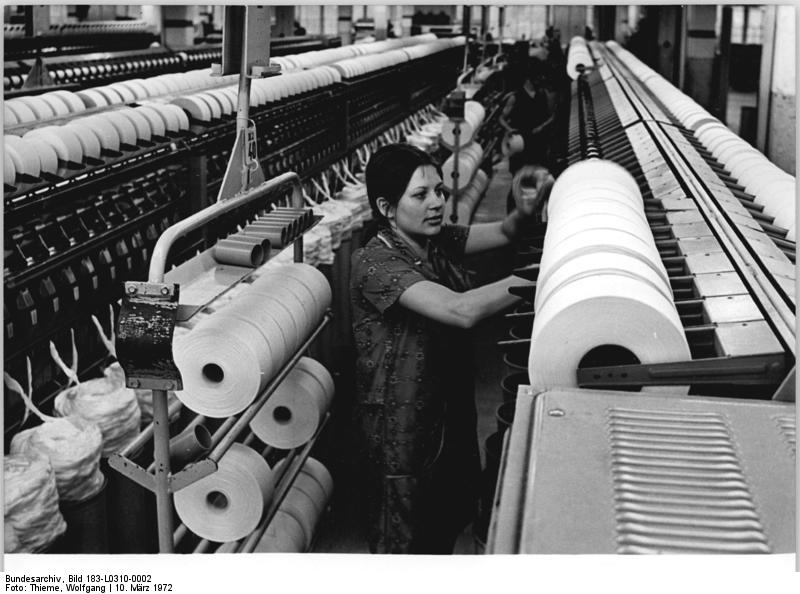Introduction
India, known for its rich textile heritage, has long been a significant player in the global yarn and wool manufacturing industry. With centuries-old traditions coupled with modern advancements, Indian yarn and wool manufacturers produce some of the finest and most diverse textile products in the world.
Historical Perspective
The history of yarn manufacturing in India dates back to ancient times. Traditional techniques such as hand spinning and weaving were integral parts of Indian culture. Over the centuries, the industry has evolved, incorporating new technologies and methodologies. The introduction of mechanized spinning mills during the British colonial period marked a significant transformation in the industry, setting the stage for modern manufacturing practices.
Current Market Landscape
Today, India is one of the largest producers and exporters of yarn globally. The country’s yarn manufacturing sector is diverse, encompassing a wide range of materials, including cotton, wool, silk, and synthetic fibers. Indian yarn is renowned for its quality, durability, and versatility, catering to various markets from fashion to industrial textiles.
The Importance of Wool in Indian Textiles
Wool has a significant place in the Indian textile industry, especially in regions with colder climates. Traditional woolen textiles, such as shawls, carpets, and blankets, have been produced for centuries. Modern wool manufacturing in India combines traditional techniques with contemporary technology to produce a wide range of high-quality woolen products.
Innovations and Sustainability in Yarn and Wool Manufacturing
1. Technological Advancements
Indian yarn and wool manufacturers are at the forefront of technological advancements in the textile industry. Companies are investing in modern machinery and automation to enhance efficiency and product quality. Innovations in dyeing and finishing processes have also improved the aesthetic and functional properties of yarns and woolen textiles.
2. Sustainable Practices
Sustainability is a critical focus for Indian yarn and wool manufacturers. Companies are adopting eco-friendly practices, such as using organic and recycled materials, reducing water and energy consumption, and implementing waste management systems. These efforts not only minimize environmental impact but also meet the growing demand for sustainable products in global markets.
Challenges and Opportunities
Despite the significant progress, the yarn and wool manufacturing industry in India faces several challenges. These include fluctuating raw material prices, competition from other textile producing countries, and the need for continuous technological upgrades. Additionally, ensuring compliance with international quality standards and sustainability norms can be demanding.
The future of the yarn and wool manufacturing industry in India is promising, with numerous opportunities for growth. The increasing global demand for high-quality and sustainable textiles presents a substantial market for Indian manufacturers. Government initiatives, such as the “Make in India” campaign, also provide support and incentives for the textile industry.
Advantages of Yarn manufacturing companies in India
India’s yarn manufacturing industry enjoys several distinct advantages, which contribute to its robust position in the global market. The Yarn manufacturing companies in India are bolstered by a combination of historical expertise, abundant raw materials, cost-effective labor, advanced infrastructure, government support, sustainable practices, a diverse product range, a strong global presence, and integration within the textile value chain.
1. Rich Textile Heritage
India’s textile heritage dates back thousands of years. This long-standing tradition has cultivated extensive knowledge and skills in yarn manufacturing, passed down through generations. This expertise enables Indian manufacturers to produce high-quality yarns with unique characteristics and intricate designs.
2. Abundant Raw Materials
India is one of the world’s largest producers of cotton, a primary raw material for yarn manufacturing. The availability of high-quality cotton reduces dependency on imports and ensures a steady supply for yarn manufacturers. Besides cotton, India produces various other fibers such as silk, wool, jute, and synthetic fibers.
3. Cost-Effective Labor
India offers a large pool of skilled labor at competitive wages. This cost advantage allows Indian yarn manufacturers to produce high-quality yarns at lower production costs, enhancing their competitiveness in global markets. The textile sector in India benefits from a skilled workforce with expertise in various aspects of yarn manufacturing, including spinning, dyeing, and weaving.
4. Advanced Infrastructure
Indian yarn manufacturing companies have invested significantly in modernizing their infrastructure. State-of-the-art machinery and advanced technologies have been adopted to enhance production efficiency and product quality. The adoption of cutting-edge technologies, such as automated spinning and digital dyeing processes, has positioned Indian manufacturers at the forefront of innovation in the yarn industry.
5. Government Support
The Indian government has implemented various policies and initiatives to support the textile industry, including the yarn manufacturing sector. Programs like the Technology Upgradation Fund Scheme (TUFS) provide financial assistance for modernizing equipment and adopting new technologies. Government schemes aimed at promoting exports, such as the Merchandise Exports from India Scheme (MEIS), offer incentives to yarn manufacturers, helping them to expand their presence in international markets.
Conclusion
India’s yarn and wool manufacturing industry is a dynamic and integral part of the country’s economy and heritage. Leading companies exemplify the blend of tradition and modernity that defines this sector. With a focus on quality, innovation, and sustainability, Indian yarn and wool manufacturers are well-positioned to continue their significant contributions to the global textile industry.

